Page 2 - Philip Seymour Hoffman Movies: Which Was His Finest Role?
By Michael West in Movies / TV / Theatre on 05 February 2014
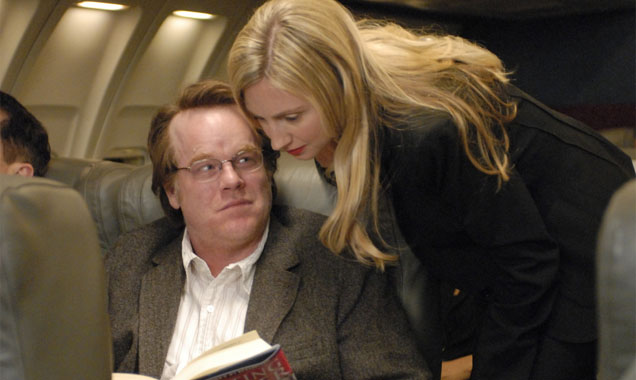
Synecdoche, New York (2008) director: Charlie Kaufman
In Charlie Kaufman's directorial debut, Philip Seymour Hoffman played an ailing theater director whose stage production becomes increasingly elaborate, eventually blurring the boundaries between fiction and reality. This post-modernist work predictably drew praise from critics though failed to recoup its $20 million budget - nevertheless, it remains of one Hoffman's most enduring performances. Sure we could discuss the various motifs at work here, not least the Jungian psychology and theory of Synecdoche, New York effectively being a play without a play, though it's probably best to remember this insane piece of cinema as Roger Ebert's finest movie of the decade.
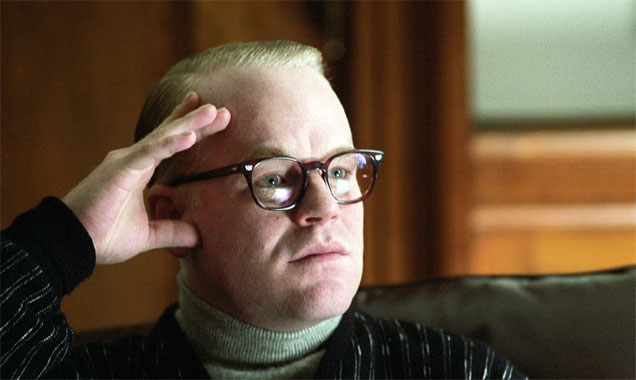
Capote (2005) director: Bennett Miller
Before Moneyball came Philip Seymour Hoffman's first collaboration with Bennett Miller - whose only previous directing credit with a 1998 documentary about a New York city bus tour guide. Neverthless, his movie about writer Truman Capote and the events after his writing of In Cold Blood stunned movie audiences around the world of Hoffman was the runaway winner of the Academy Award for Best Actor after also scooping a BAFTA, a Golden Globe, a Screen Actors Guild and Satellite Award. It is the movie role that Hoffman will perhaps be best remembered.
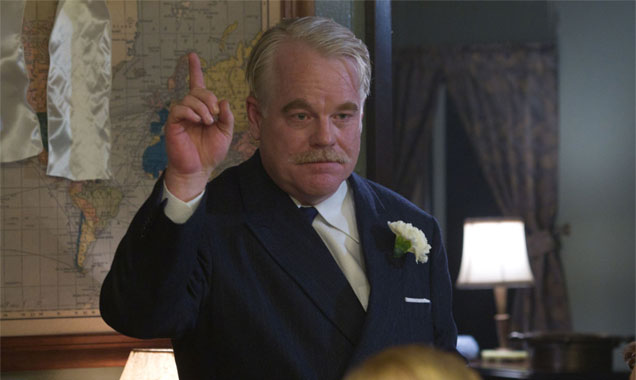
The Master (2012) director: Paul Thomas Anderson
It was one of the strangest and yet most beautiful movies of 2012. Paul Thomas Anderson's awesome The Master starred Philip Seymour Hoffman as Lancaster Dodd, the leader of a religious movement who takes in a young drifter named Freddie Quell (Joaquin Phoenix). Whether it concerned the teachings of Scientology founder L. Ron Hubbard became largely irrelevant, given the power and performances of The Master. Shot in stunning 65mm film stock, it was released to critical acclaim and Hoffman scored an Oscar nomination for Best Supporting Actor.
If, for some bizarre reason, you're unconvinced by Hoffman's talent for acting then simply fire up The Master and wait for the scene in which a sceptical naysayer doubts Dodd's methods, calling them cultish and ridiculous. It prompts a riposte from the leader who begins to slowly unravel before losing control and instantly regretting it.
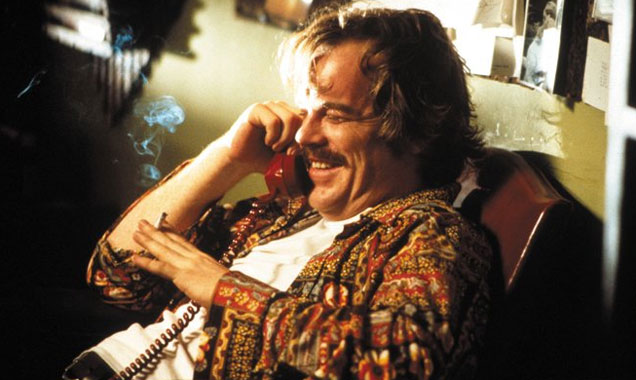
Almost Famous (2000) director: Cameron Crowe
While Philip Seymour Hoffman's movies have influenced new genrations of actors, he probably also encouraged a fair few amateur music journalists to persue the life of a scribe. In Cameron Crowe's semi-autobiographical movie, Hoffman plays the legendary rock journalist Lester Bangs, who takes an aspiring writer under his wing, giving him a $35 assignment to review a Black Sabbath concert. Bangs effectively invented a new style of rock music criticism during his years at Rolling Stone magazine and Creem, famously getting published in the former after sending in a hugely negative review of the MC5's Kick out the Jams and requesting a letter of explanation should it not make it into print.
Hoffman got the root of Bangs' lifestyle as a maverick critic and ultimately stole the movie in one scene, advising his young protégé about the pitfalls ahead. "The only true currency in this bankrupt world is what we share with someone else when we're uncool," he said.
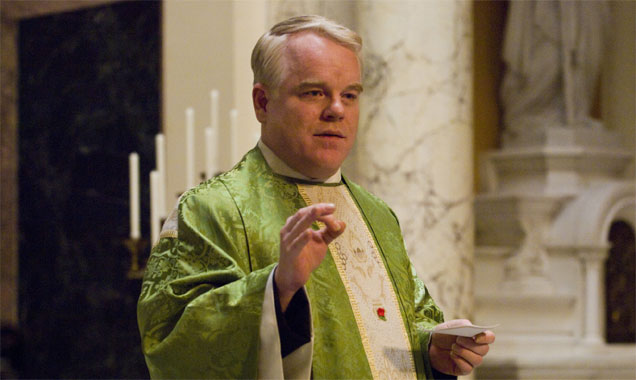
Doubt (2008) director: John Patrick Shanley
In arguably Philip Seymour Hoffman's most underrated movie role, John Patrick Shanley's Doubt provided the New Yorker with a platform to flex his acting muscles with precisely the write material and co-stars. Wrapped up in paranoia and suspicion, Doubt is effectively a masterclass of acting from not only Hoffman, but the unrivalled Meryl Streep, Amy Adams and Viola Davis.
Based on Shanley's Pulitzer Prize winning stage play, it concerned the principal of a Catholic school (Streep), beginning to have suspicions about a priest's (Hoffman) relationship with a troubled young student.
The film's four main actors received critical acclaim and all of them were nominated for Oscars at the 81st Academy Awards. However, the power of Doubt relied heavily on Hoffman's ability to remain unreadable and audiences were left unable to make up their mind in the movie's dramatic concluding moments.
Contactmusic
Movies and Trailers

The Hunger Games: Mockingjay Part 2 Movie Review
Suzanne Collins' saga comes to a suitably epic conclusion in a climactic series of battles...

The Hunger Games: Mockingjay - Part 2 Final Trailer
Katniss Everdeen is determined to take down President Snow once and for all. Too many...

The Hunger Games: Mockingjay Part 2 - Join The Revolution Trailer
Having successfully rescued Peeta and the other Hunger Games victors, Katniss Everdeen is feeling the...

The Hunger Games: Mockingjay Part 1 Movie Review
This four-part franchise, based on the Suzanne Collins novels, turns very dark with this strikingly...

The Hunger Games: Mockingjay, Part 1 Trailer
With the incredible ramifications of the end of the yearly ritualistic sacrificial televised Hunger Games,...
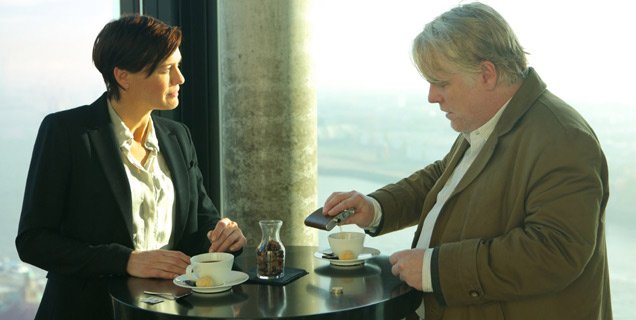
A Most Wanted Man Movie Review
Photographer-turned-filmmaker Anton Corbijn continues to show striking maturity with only his third movie (after Control...

God's Pocket Movie Review
Despite a strong sense of the characters and the setting, this film struggles to engage...
Advertisement
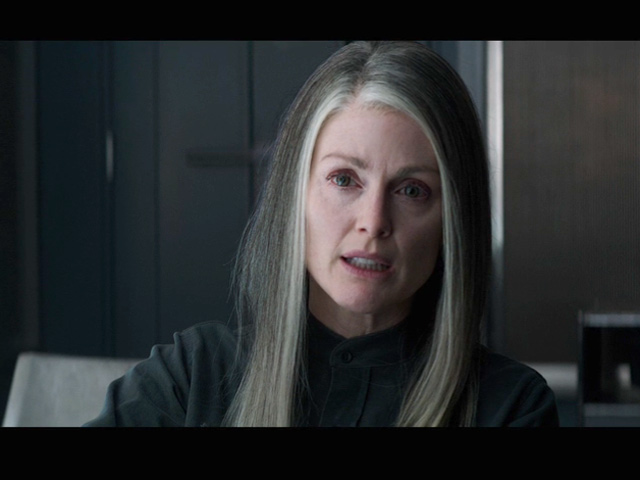
The Hunger Games: Mockingjay Part 1 'Our Leader The Mockingjay' Trailer
Katniss Everdeen has survived the latest political disaster of Panem following the shocking 75th Hunger...

The Hunger Games: Mockingjay Part 1 - 'Mockingjay Lives' Teaser Trailer Trailer
Following Katniss Everdeen's escape from the catastrophic 75th Hunger Games with mentor Haymitch and two...
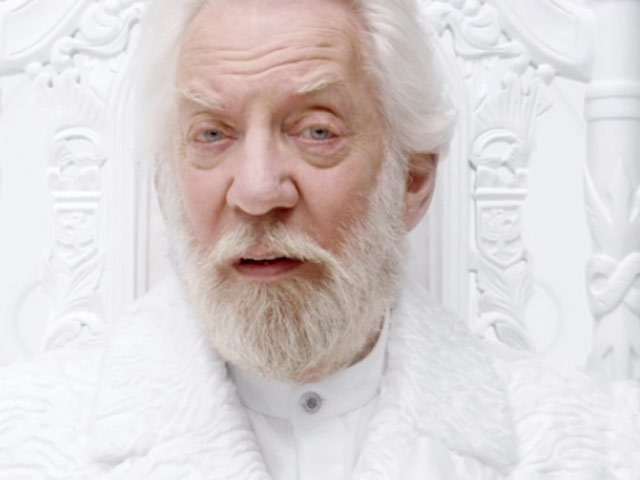
The Hunger Games: Mockingjay, Part 1 Trailer
President Snow has a message for the people of Panem in a mock propaganda clip...
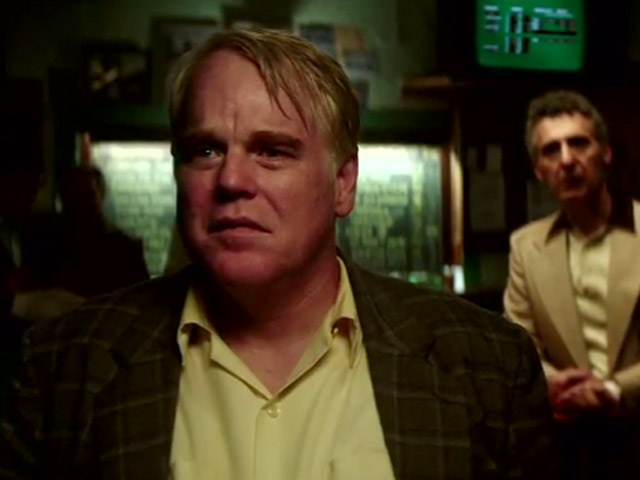
God's Pocket Trailer
God's Pocket seems to be an ordinary working class neighbourhood at face value; full of...
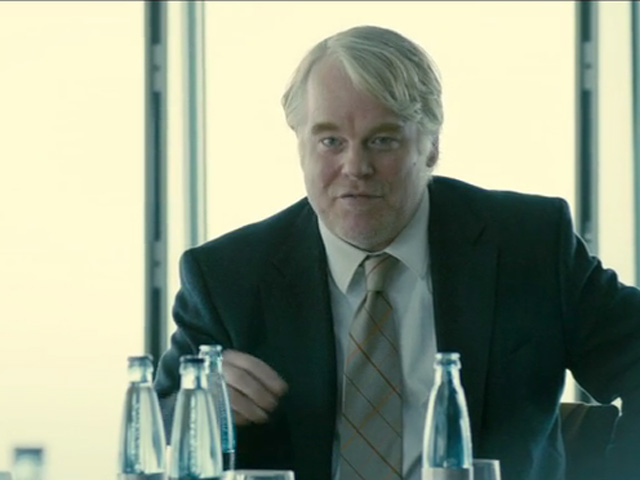
A Most Wanted Man Trailer
A German spy belonging to a secret anti-terrorist group named Gunther Bachmann embarks on his...
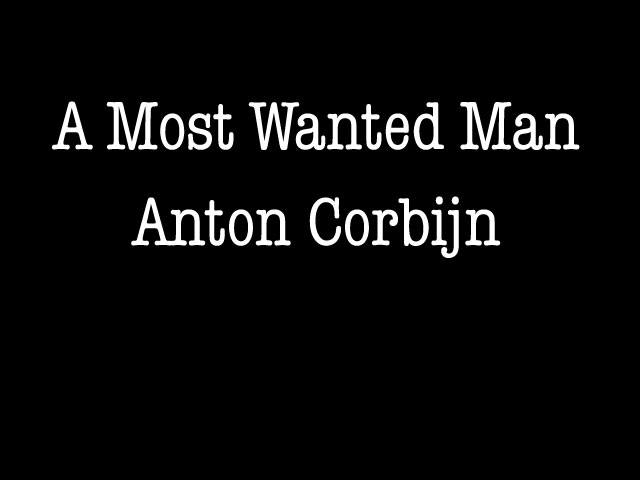
A Most Wanted Man Trailer
Gunther Bachmann is a German spy who has been enlisted by both German and American...

The Hunger Games: Catching Fire Movie Review
After 2012's The Hunger Games caught us off-guard with its subtle themes, this sequel more...
Advertisement

